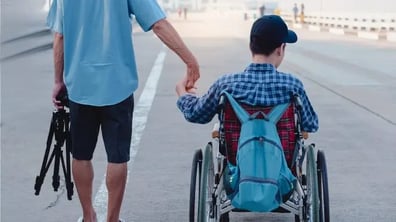Why Singapore Leads APAC in Clinical Trials and Biomedical Innovation
Singapore continues to lead the way in Asia’s clinical research ecosystem with a robust regulatory framework, world-class healthcare infrastructure, and a diverse patient population. It offers a strategically-placed and innovation-friendly environment for clinical development, making it an ideal launchpad for sponsors and CROs seeking speed, quality, and scalability in the region.
1. Patient Demographics & Disease Burden in Singapore
Singapore’s population is approximately 5.79 million, with a life expectancy of 83.5 years. The country is experiencing a rapid demographic shift, with a growing proportion of citizens aged 65 and above, driving demand for trials in chronic and age-related conditions.1
Top 5 Causes of Death in Singapore1

Top 5 Causes of Death in Singapore1
-
- Cancer – 24.6%
- Pneumonia – 23.5%
- Ischaemic Heart Disease – 19.7%
- Stroke – 5.6%
- Hypertensive Diseases – 3.1%
Cancer remains the leading cause of death in Singapore, accounting for over 24% of all mortalities in recent years6
This underscores an urgent need for innovative solutions and positions Singapore as a fertile ground for cutting-edge clinical research. With strong government backing—such as the recent S$50 million investment in precision oncology—and robust collaborations among institutions like the National Cancer Centre Singapore (NCCS), the Agency for Science, Technology and Research (A*STAR), and Duke-National University of Singapore (Duke-NUS), the nation is well-poised to lead transformative cancer research. These efforts not only aim to improve patient outcomes but also reinforce Singapore’s role as a global hub for biomedical innovation.
Cancer Drug List9:
- The Cancer Drug List (CDL) details which outpatient cancer therapies are reimbursed under MediShield Life (MSHL), Medisave (MSV), and Integrated Shield Plans (IPs), with set monthly claim and withdrawal limits
- Drugs are classified under MOH Standard Drug List (SDL) or Medication Assistance Fund (MAF) to determine their subsidy status
- Coverage under MediShield Life (MSHL) & Medisave (MSV) begins Sept 2022; for Integrated Shield Plans (IPs), it applies from April 2023
- The full, searchable list is available via the MOH website — it includes active ingredient, indication, subsidy class, MediShield Life (MSHL)/Medisave (MSV) limits, and category tiers.
2. Singapore Clinical Research Trends & Statistics
Between 2020 and 2025, Singapore hosted 1,179 clinical trials. Industry sponsors accounted for 551 trials (47%), while academic institutions, hospitals, and research organisations contributed 718 trials (53%).2,4,5,7 The majority of industry-led trials were driven by multinational companies. By trial phase, research leaned moderately toward mid- and late-stage development. We see strong interest from top health care professionals to work on early phase studies.
Over the 2020-2025 period, trial volume remained stable with an annual average for around 220 and a slight dip in 2024 (179 trials). The peak came in 2021 (276 trials), coinciding with heightened global research activity during the COVID-19 pandemic.2,7
A comparative analysis of six leading APAC countries for clinical trials shows that China leads in the absolute number of trials (25,329), followed by South Korea (5,059), Australia (3,821), Japan (2,541), India (1,914) and Singapore (1,179). The percentage of industry-sponsored trials as percentage of industry-sponsored trials varied greatly across these top 6 countries (Fig 2).7
Top therapeutic areas include, oncology, CNS disorders, diabetes, and rare diseases.
Clinical Trials in APAC (2020-2025) By Sponsorship Type

3. Singapore's Universal Healthcare Advantage
Singapore’s universal healthcare system—comprising MediShield Life (national health insurance), MediSave (mandatory savings fund for hospitalisation and certain costly outpatient expenses) and MediFund (last-resort government assistance)—ensures broad access to care and supports patient recruitment and retention.
Ranked #1 globally in healthcare access and outcomes, Singapore offers a stable and efficient environment for clinical development.
4. Healthcare System & Research Infrastructure
Singapore’s healthcare system is a hybrid public-private model, with major public institution clusters like Singapore Health Services (SingHealth), National Healthcare Group (NHG), and National University Healthy System (NUHS), and private providers such as Parkway Pantai, Raffles Medical, and Thomson Medical.
Infrastructure Expansion Plan (2025–2030)3
This plan aims to add another 13,600 beds to the healthcare system. This includes adding about 2,800 public acute and community hospital beds to the over 12,000 public hospital beds.
- Singapore General Hospital (SGH) Elective Care Centre: 300 beds by 2027
- Alexandra Hospital Redevelopment: 1,300 beds by 2028
- Eastern General Hospital Campus: 1,400 beds by 2029
- Nursing Homes: 10,600 new beds.
Singapore is also pioneering hospital-at-home models, AI diagnostics, and robotic surgeries, enhancing its readiness for decentralised and tech-enabled trials. Futhermore, Singapore offers the industry partners a stable and pro-business operating environment, skilled talent, advanced manufacturing capabilities, and a strong intellectual property protection.
5. Regulatory Environment & Start-Up Timelines
Singapore’s Health Sciences Authority (HSA) provides a streamlined regulatory pathway for clinical trials that includes the following processes:
- Clinical Trial Authorisation (CTA): ~30 working days
- Phase I Bioequivalence Studies: ~15 working days
- IRB Ethics Review: Conducted in parallel
- Contracting: Master Clinical Trial Agreement (MCTA) reduces negotiation time from months to weeks.
Effective from 1st April 2025, A Mutual Recognition Agreement (MRA) was established between five major IRBs, allowing multi-centre studies to be reviewed by any one of them instead of requiring separate approvals at each site8:
- A*STAR IRB (Agency for Science, Technology and Research)
- NHG DSRB (Domain Specific Review Board, National Healthcare Group)
- NTU-IRB (Nanyang Technological University IRB)
- NUS‑IRB (National University of Singapore IRB)
- SingHealth CIRB (Centralised IRB, SingHealth)
Under this agreement, studies involving A*STAR, NHG, NTU, NUHS, NUS, or SingHealth sites—or their affiliated institutions—can be submitted and reviewed by any one of these IRBs.
Jointly developed by SingHealth and NHG, the Ethics and Compliance Online System (ECOS) is a one-stop solution to support the research lifecycle from Study Initiation to Completion, enabling a more efficient management of research portfolios and ethics applications. ECOS is accessible to both internal and external users and for industry, the access is mainly for IRB module. The ECOS includes the following modules9:
| IRB | Minimum Training | Clinical Research Management System (CRMS) | Compliance – DNC/SAE/PISAF | Quality – Monitoring and Audit |
This efficiency enables faster trial initiation and enhances Singapore’s appeal for global clinical research. HSA has been working closely with industry to promote Clinical Trials, expedite approval timelines and minimize start up timelines.
Why Singapore Is a Strategic Hub for Clinical Trials in Asia
Singapore’s clinical trial ecosystem is a blueprint for efficiency, innovation, and patient-centricity. As the region continues to grow in strategic importance, sponsors and CROs looking to expand in Asia should consider Singapore not just as a gateway—but as a global leader in clinical excellence.
Singapore continues to enhances its life sciences & medtech ecosystem
|
|
|
Precision for Medicine brings deep regional expertise and global scale to clinical trial execution across Asia-Pacific. With established teams in Singapore, South Korea, Taiwan, and Australia, we understand the regulatory nuances, patient populations, and healthcare systems that drive trial success. Our integrated approach combines regulatory strategy, site activation, biomarker-driven design and more to help sponsors accelerate development timelines.
Whether launching a first-in-human study or expanding a global program, partner with Precision for fast, efficient, and high-quality research across APAC and beyond.
-
Explore

Asia-Pacific CRO Services
ExplorePrecision's Asia Pacific CRO services provide you access to global expertise underpinned with regional insight to help you overcome barriers through every phase of your development journey.Asia-Pacific CRO Services
ExplorePrecision's Asia Pacific CRO services provide you access to global expertise underpinned with regional insight to help you overcome barriers through every phase of your development journey. -
Explore

Clinical Trial Management
ExploreOur approach seamlessly blends innovation in early-phase trials with robust effectiveness in late phases, ensuring your research advances confidently towards its goals.Clinical Trial Management
ExploreOur approach seamlessly blends innovation in early-phase trials with robust effectiveness in late phases, ensuring your research advances confidently towards its goals. -
Explore

Speak with a Regional Expert
ExploreTell us about your upcoming project and we will connect you with the right team member, right away.
Speak with a Regional Expert
ExploreTell us about your upcoming project and we will connect you with the right team member, right away.
Frequently Asked Questions
Why is Singapore considered a leading hub for clinical trials in Asia?
Singapore offers a robust regulatory framework, world-class healthcare infrastructure, and a diverse patient population. Its strategic location and innovation-friendly environment make it ideal for sponsors and CROs seeking speed, quality, and scalability in clinical development.
How does Singapore’s healthcare system support clinical trial recruitment?
Singapore’s universal healthcare system—comprising MediShield Life, MediSave, and MediFund—ensures broad access to care. This supports patient recruitment and retention, making trials more efficient and inclusive.
What are the top therapeutic areas for clinical trials in Singapore?
Between 2020 and 2025, Singapore hosted trials primarily in oncology, CNS disorders, diabetes, and rare diseases, reflecting both global demand and local disease burden.
What are the regulatory timelines for starting a clinical trial in Singapore?
The Health Sciences Authority (HSA) offers streamlined approvals: Clinical Trial Authorisation (CTA) takes ~30 working days, Phase I bioequivalence studies ~15 days, and ethics reviews are conducted in parallel. Contracting is expedited through a Master Clinical Trial Agreement (MCTA).
References
-
Ministry of Health Singapore. Principal Causes of Death. Ministry of Health Singapore. https://www.moh.gov.sg/others/resources-and-statistics/principal-causes-of-death. Accessed October 20, 2025.
-
National Cancer Centre Singapore. SG Ramps Up Cancer Fight with S$50 Million in National Grant Funding for Precision Oncology. https://www.nccs.com.sg/news/research/sg-ramps-up-cancer-fight-with-50-million-in-national-grant-funding-for-precision-oncology. Accessed October 20, 2025.
-
National Healthcare Group. Mutual Recognition of IRB Reviews for Collaborative Studies. https://ethics.gri.nhg.com.sg/mutual-recognition-of-irb-reviews-for-collaborative-studies-reviewed-by-5-irbs/. Accessed October 20, 2025.
-
BioSpectrum Asia. APAC Clinical Trial Growth. BioSpectrum Asia. https://www.biospectrumasia.com/analysis/25/26280/medical-advances-soar-with-apacs-clinical-trial-growth.html. Accessed October 20, 2025.
-
Health Sciences Authority. Clinical Trials Overview. Health Sciences Authority. https://www.hsa.gov.sg/clinical-trials. Accessed October 20, 2025.
-
Singapore Clinical Trials Portal. ClinicalTrials.sg. https://clinicaltrials.sg/. Accessed October 20, 2025.
-
BioSpectrum Asia. Medical Advances Soar With APAC’s Clinical Trial Growth. https://www.biospectrumasia.com/analysis/29/26280/medical-advances-soar-with-apacs-clinical-trial-growth.html. Accessed October 20, 2025.
-
Ministry of Health Singapore. Expanding Healthcare Capacity and Transforming the Healthcare Workforce. https://www.moh.gov.sg/newsroom/expanding-healthcare-capacity-and-transforming-the-healthcare-workforce. Accessed October 20, 2025.
- SingHealth–Duke‑NUS. ECOS: Ethics and Compliance Online System. Research Integrity, Compliance & Ethics (RICE); n.d. https://www.singhealthdukenus.com.sg/research/rice/ecos. Accessed October 20, 2025.







